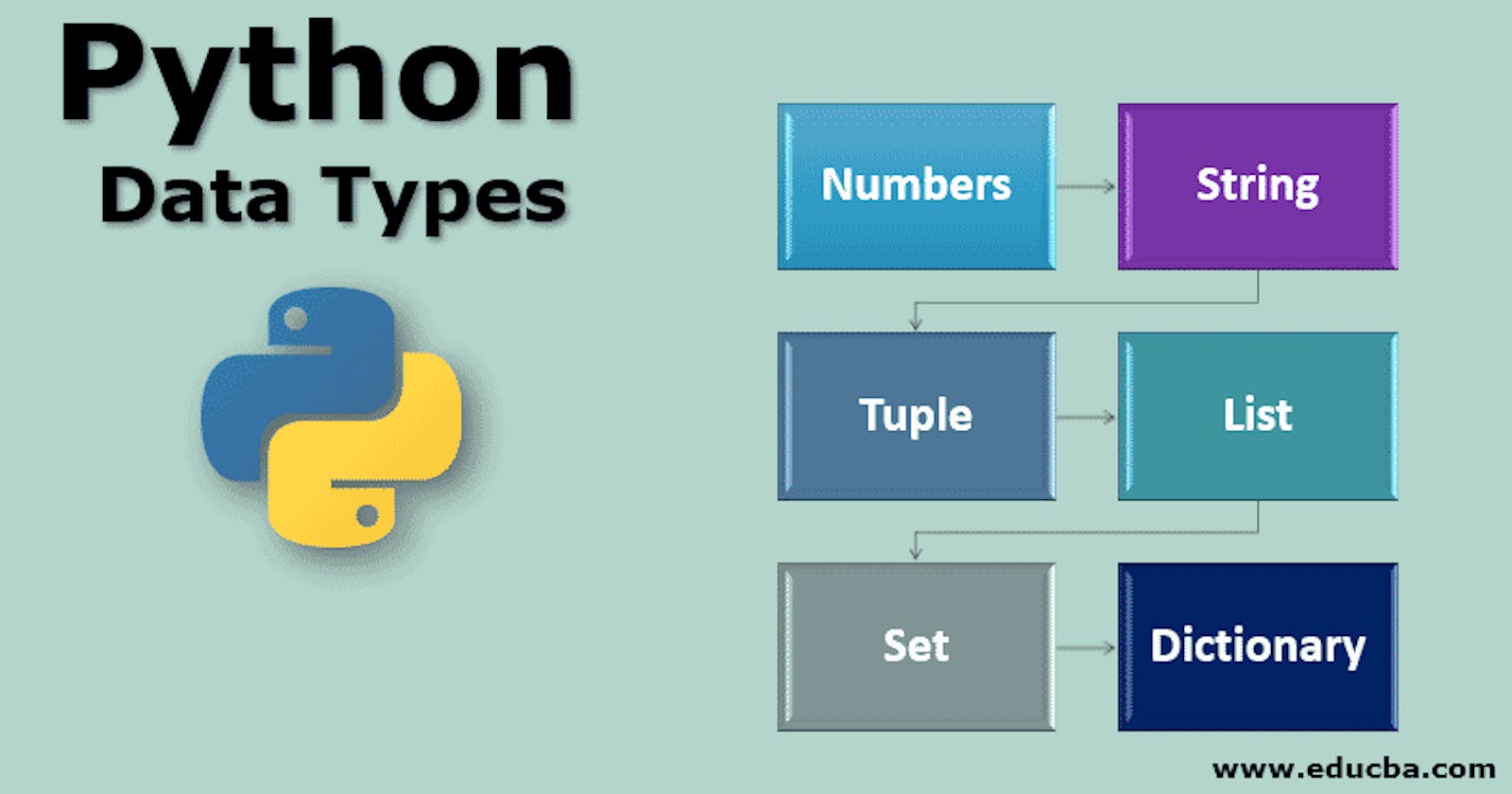Table of contents
🔅 Python Data Types: -
Data types are the classification or categorization of data items. It represents the kind of value that tells what operations can be performed on a particular data.
Since everything is an object in Python programming, data types are classes and variables are instances (objects) of these classes.
Python has the following data types built-in by default: Numeric(Integer, complex, float), Sequential(string,lists, tuples), Boolean, Set, Dictionaries, etc
Python is a dynamically typed language, which means that you do not need to explicitly declare the data type of a variable when you create it. Instead, Python automatically determines the data type based on the value assigned to the variable. Here are some of the common data types in Python:
Numeric Types:
int: Represents integer values (e.g., 5, -10).
float: Represents floating-point values (e.g., 3.14, -0.5).
Boolean Type:
- bool: Represents Boolean values (True or False).
Text Type:
- str: Represents strings of characters (e.g., "Hello, World!").
Sequence Types:
list: Represents ordered, mutable collections of items (e.g., [1, 2, 3]).
tuple: Represents ordered, immutable collections of items (e.g., (1, 2, 3)).
range: Represents a sequence of numbers (e.g., range(5) generates 0, 1, 2, 3, 4).
Mapping Type:
- dict: Represents key-value pairs (e.g., {"name": "John", "age": 30}).
Set Types:
set: Represents an unordered collection of unique elements (e.g., {1, 2, 3}).
frozenset: Represents an immutable set.
Binary Types:
bytes: Represents a sequence of bytes (e.g., b'hello').
bytearray: Represents a mutable sequence of bytes.
memoryview: Represents a memory view of an object.
None Type:
- None: Represents the absence of a value or a null value.
Custom Types:
- You can also create your own custom data types using classes.
🔅 Data structure for DevOps: -
In DevOps, Python offers a variety of built-in and third-party data structures that can be used to manage and manipulate information related to software development, deployment, and operations. Here are some Python data structures commonly used in DevOps:
Lists:
- Lists are versatile data structures that can hold a collection of items, such as configuration parameters, file paths, or environment variables. They are mutable, meaning you can add, remove, and modify elements.
Dictionaries:
- Dictionaries store key-value pairs and are often used to represent configuration settings, environment variables, or metadata. They provide fast lookups based on keys and are useful for organizing and retrieving data.
Tuples:
- Tuples are similar to lists but are immutable. They can be used to represent fixed sets of data, such as version numbers or deployment information.
Sets:
- Sets are unordered collections of unique elements. They can be used to represent distinct values, like IP addresses, service names, or server groups.
Strings:
- Strings are essential for representing text-based data, such as log messages, error codes, or configuration templates. Python offers powerful string manipulation capabilities.
JSON and YAML Data:
- Python has libraries for working with JSON (such as the
jsonmodule) and YAML (such as thepyyamllibrary). These data formats are commonly used for configuration files, IaC templates, and API data exchanges.
- Python has libraries for working with JSON (such as the
Named Tuples:
- The
collectionsmodule provides thenamedtupleclass, which allows you to create simple, lightweight data objects with named fields. This can be useful for representing structured data.
- The
DataFrames (Pandas):
- The Pandas library provides the DataFrame data structure, which is excellent for working with tabular data. DataFrames are useful for analyzing logs, metrics, and other structured data.
SQLite and Databases:
- Python has a built-in
sqlite3module for working with SQLite databases. Additionally, libraries like SQLAlchemy provide a powerful toolkit for interacting with various relational databases.
- Python has a built-in
Regular Expressions (RegEx):
- While not a traditional data structure, regular expressions (imported from the
remodule) are essential for parsing and manipulating text-based data, such as log files.
- While not a traditional data structure, regular expressions (imported from the
Container Libraries (Docker SDK):
- If you're working with containers, the Docker SDK for Python allows you to manage Docker containers, images, and networks programmatically.
API Libraries:
- Libraries like
requestsmake it easy to interact with APIs, which is essential for integrating various tools and services in a DevOps workflow.
- Libraries like
Thank you for being with me !! , Please share your valuable feedback.
